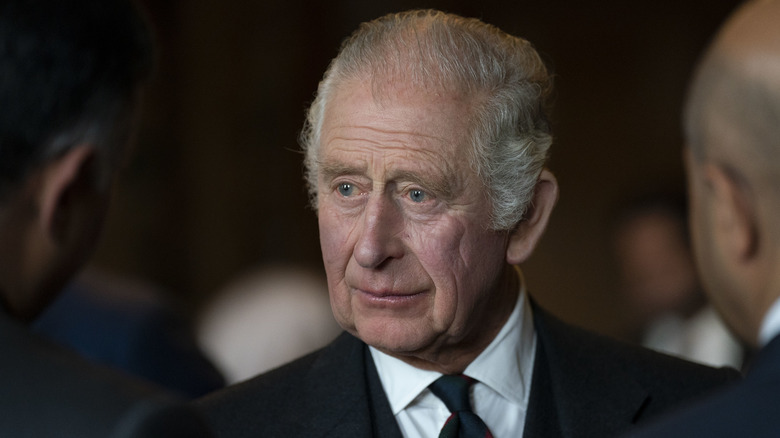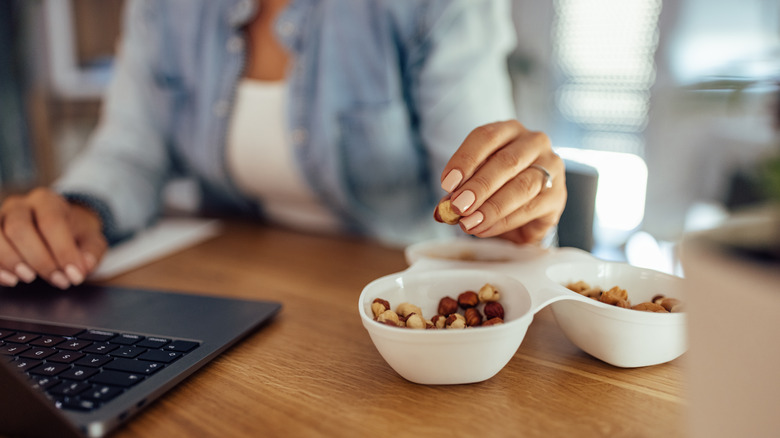King Charles Skips This Meal Every Day. But Is It Healthy?
In addition to maintaining a plant-based diet, King Charles III has another meal practice that might surprise you: he opts for only two out of three meals a day.
Some of us might struggle to get through the day without a lunch break, but the King forgoes the midday meal altogether, per The Independent. Prioritizing only dinner and breakfast (or perhaps more accurately, brunch), the 75-year-old King has been reported as saying how lunch tends to get in the way of his often busy days. Most of us can certainly relate to that. In fact, 2023 survey data from business catering company ezCater revealed that 48% of respondents skip lunch one or more times per week at work, with rates of lunch-skipping highest among Gen Z.
To find out how skipping a meal affects our health, we turned to Kara Lydon, RD, LDN (she/her), registered dietitian, intuitive eating counselor, and owner of Kara Lydon Nutrition and The Foodie Dietitian Blog. "Our bodies thrive on regular, consistent eating, every 3-4 hours," she told Health Digest in an interview. When we go without a meal, it affects everything from our metabolism to our energy levels, gut health, mood, hunger and fullness awareness, and more, she explains.
What might happen if you skipped lunch every day?
Skipping lunch doesn't only affect the body during lunchtime, but throughout the day. Kara Lydon describes how, if one were to skip lunch on a daily basis, it would result in low blood sugar levels and extreme hunger by the time dinner rolls around. "With extreme hunger, you're more likely to eat fast, choose foods with less intention (like simple carbs that are quickly digested), and overeat to the point of discomfort," Kara tells us. This was demonstrated in a 2020 study published in Public Health Nutrition in which it was found that skipping lunch affected diet quality at subsequent meals, resulting in lower scores for foods such as whole grains, whole fruits, total vegetables, and seafood, but higher scores in food categories like refined grains.
If a person were to skip lunch, they might also notice fatigue setting in as the day goes on, along with feelings of irritability, anxiety, or difficulty concentrating without enough glucose from carbs to keep our brains and bodies going. Yes, hangry is indeed a thing, Kara tells Health Digest.
If you don't have time for lunch, eat a snack instead
Skipping lunch on a regular basis may also have detrimental effects in the long run. "Several studies show that skipping meals and eating irregularly is associated with negative effects on health, such as increased incidence of cardiovascular disease, metabolic syndrome, and poor mental health," Kara Lydon states. If lunch isn't an option on those jam-packed days, however, know that a snack can go a long way.
There are plenty of simple snacks that can help prevent an afternoon slump and maintain our health long-term. Experts at Northwestern Medicine suggest a scoop of almonds or a protein-packed peanut butter sandwich on whole grain bread. Melons are a double energy-boosting treat because in addition to their complex carb content, they're also a particularly hydrating fruit. Beans are another great snack choice, but if you're short on time, a ½ cup of cooked lentils can be a faster, equally healthy way to go until you're able to enjoy that next meal.


